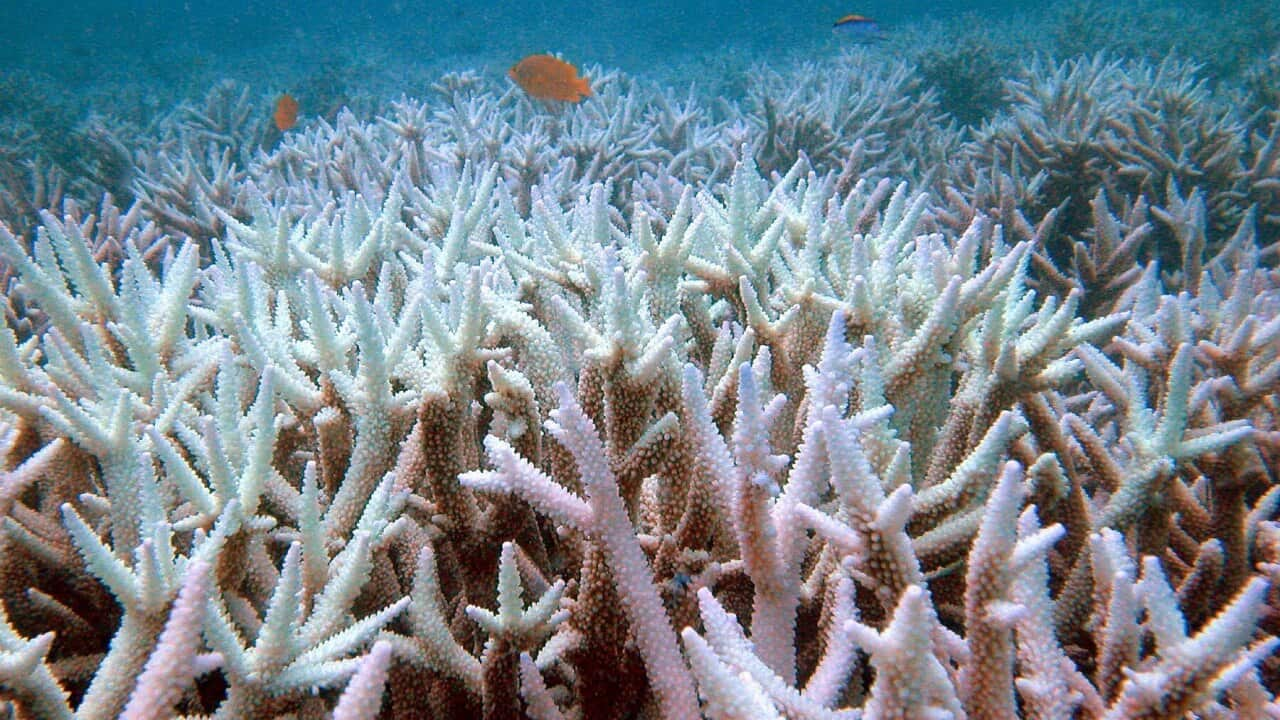Australia has avoided having the Great Barrier Reef listed as an endangered world heritage site by UNESCO, despite concerns about climate change-fuelled damage to the ecosystem's corals.
At a World Heritage Committee meeting chaired by China on Friday night, and after a concerted lobbying effort by the Australian government, delegates voted to delay the decision.
Committee members passed amendments removing mention of the listing, while requesting that Australia submit an updated report on the state of conservation of the reef by February 2022.
UNESCO's draft decision proposing the in-danger listing had said Australia's long-term plan for the reef required "stronger and clearer commitments, in particular towards urgently countering the effects of climate change".
Tim Badman, director of the agency's World Heritage Programme, argued the reef "unambiguously" met the criteria for an endangered listing.
"Despite the major efforts that have been made by the state party, both the current status of the outstanding universal value of the Great Barrier Reef and the prospects for future recovery have significantly deteriorated," he said.
The Australian government has argued there was a lack of consultation and no site visit prior to the proposed listing.
In an appeal to the committee before Friday's vote, Environment Minister Sussan Ley had asked for time so experts could "see firsthand our commitment to the reef, its present condition and our management".
Afterwards, she said the government would continue to work with UNESCO and the World Heritage Committee to protect the long-term future of the reef.
“The World Heritage Committee’s endorsement of Australia’s position will give reef managers, marine scientists and land managers the ability to demonstrate the success of the outstanding work that is taking place," Ms Ley said in a media release.
Federal politicians have lobbied against the proposal since it was revealed last month, fearing it would hurt the image of the natural wonder and one of the jewels of Australian tourism.
Ms Ley flew to Paris to personally lobby member states on the committee, while Australia also took key ambassadors on a reef snorkeling trip.
Australia 'back on probation'
Greenpeace Australia on Friday night was very critical of UNESCO's decision, describing it as "a victory for one of the most cynical lobbying efforts in recent history".
"Climate change is the number one threat to the Great Barrier Reef - and the Australian government has no credible plan for cutting emissions, no climate target and continues to promote and subsidise the mining and burning of coal, oil and gas that are the number one drivers of global warming," chief executive David Ritter said in a statement.
The World Wide Fund for Nature's Richard Leck, meanwhile, said UNESCO had "put Australia on probation".
"Business as usual on climate will not prevent an in-danger listing in a year’s time,” Mr Leck said in a media release. "The Australian government’s first action must be to start work on a plan for Australia to do its fair share to limit global temperature increase to 1.5 degrees."
Labor’s environment spokesperson Terri Butler said the news was an indictment of the federal government and called on it to “dramatically lift its game on Reef protection”.
“It was the Morrison government’s failures on reef conservation and climate action that made Australia’s Great Barrier Reef vulnerable to an ‘in danger’ listing, Now the best [it] has been able to achieve is kicking the can down the road,” she said in a statement.
The decision had already been postponed from 2015, when Australia successfully waged a similar diplomatic campaign and committed billions of dollars to reef protection.
But the 2,300-kilometre-long ecosystem has since suffered three mass coral bleaching events, which are caused by rising ocean temperatures due to global warming.
Though government scientists say corals have shown signs of recovery in the past 12 months, they admit the reef's long-term outlook remains "very poor".
Two-thirds of the reef is believed to have been damaged in some way.
With AAP and AFP.











